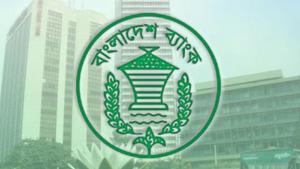Published in The Daily Star on Monday, 18 July 2016
Monetary policy to focus on growth momentum
Rejaul Karim Byron
 The central bank is set to announce the new monetary policy next week that will aim to maintain the private sector credit growth momentum.
The central bank is set to announce the new monetary policy next week that will aim to maintain the private sector credit growth momentum.
The objective of the forthcoming monetary policy is to keep pace with the government’s budgetary target of higher growth and lower inflation, said an official of the Bangladesh Bank.
Economists are on board with the central bank’s stance to maintain the credit growth momentum, adding that the next monetary policy is most likely to be on the expansionary side.
However, they emphasised giving the highest priority to ensuring the quality of credit. Zahid Hussain, lead economist of the World Bank’s Dhaka office, however, differed with them.
“It will be important to maintain policy continuity on the side of caution rather than aggression, particularly when the fiscal policy is moderately expansionary.”
A BB official said the central bank has already held meetings with representatives of different sectors and leading economists, including former BB governors, about the forthcoming monetary policy.
During the meetings, the experts gave differing opinions and the central bank will prepare its next monetary policy incorporating the views.
The government has set the economic growth target for the current fiscal year at 7.2 percent; it set the goal of containing inflation within 5.8 percent.
The forthcoming monetary policy statement will face the difficult challenge of reducing inflation to 5.8 percent and increasing GDP growth to 7.2 percent in an uncertain global and domestic environment as well as the persistent supply side constraints, Hussain said.
With a slow rate of expansion in the economy’s production capacity, higher growth tends to come with higher inflation in an expansionary policy environment.
Given the current state of the economy, particularly a high rate of non-food inflation, monetary accommodation rather than expansion is likely to serve the economy better, he said.
The government had set the private sector credit growth at 14.8 percent for last fiscal year. In May this year, growth crossed the target and stood at 16.4 percent, and the central bank estimates that by June it will have reached 16.5 percent.
“The private sector credit growth target for this fiscal year will be set keeping the present trend in mind,” said the BB official, adding that no change will be brought in the policy rate, which was slashed 50 basis points in January.
The banking system is flush with excess liquidity making further monetary easing somewhat redundant, the WB economist said.
“I think the monetary policy should be accommodative. The growth achieved in private sector credit should be encouraged,” said Salehuddin Ahmed, a former central bank governor.
In the present context, giving much emphasis on inflation is not necessary, he said.
“A good number of challenges are being observed in the global economy. What will be the exchange rate of pound and euro? What impact will it have on the country’s exports? Plus, the international commodity price is showing some upward trend.”
The new monetary policy should keep an eye on the issues, he added. “Private sector credit growth will have to be stimulated to meet the investment projection made in the current budget. Besides, the inflation is low now,” said Mustafizur Rahman, executive director of the Centre for Policy Dialogue. A good number of incentives have been given in this year’s fiscal policy to boost investment, which now needs to be stimulated by the monetary policy. “In that case, Bangladesh Bank may take some expansionary policy. For this, there is scope to lower the interest rate on loans further.”
Rahman also said the monetary policy must look to shrink the spread (the difference between deposit and lending rates), by lowering the lending rate instead of slashing the deposit rate.
“The real interest rate on savings is already showing a negative trend,” he said, adding that the returns to savings instrument and special deposits should be such that the real income of the savers does not decrease.
Rahman also said that central bank must not disregard the quality loans in its aim to increase credit growth. “The increase in non-performing loans shows that low quality loans are being disbursed,” he added.
Husain called for reforms to reduce the non-performing loans in the forthcoming monetary policy.
“They are a high priority at this stage. Monetary policy is not just about setting the monetary programme targets — it is also expected to provide directions about reforms in financial regulation.”
Further recapitalisation of state-owned banks need to be linked with governance reforms to support strong commercially oriented business strategies and keeping separate the ownership and management, he said.
Better regulatory coordination between the BB and the Banking and Financial Institutions Division on the issues will be critical.


